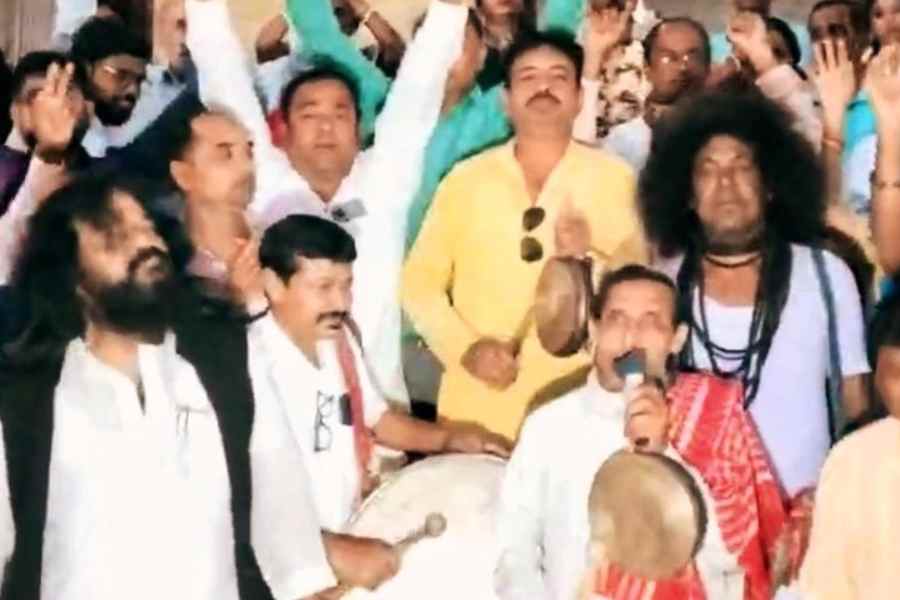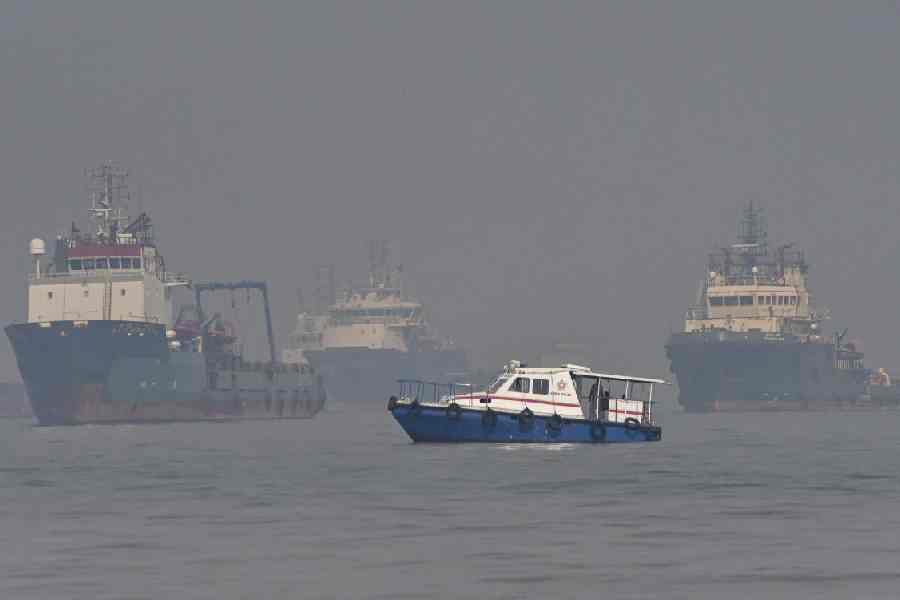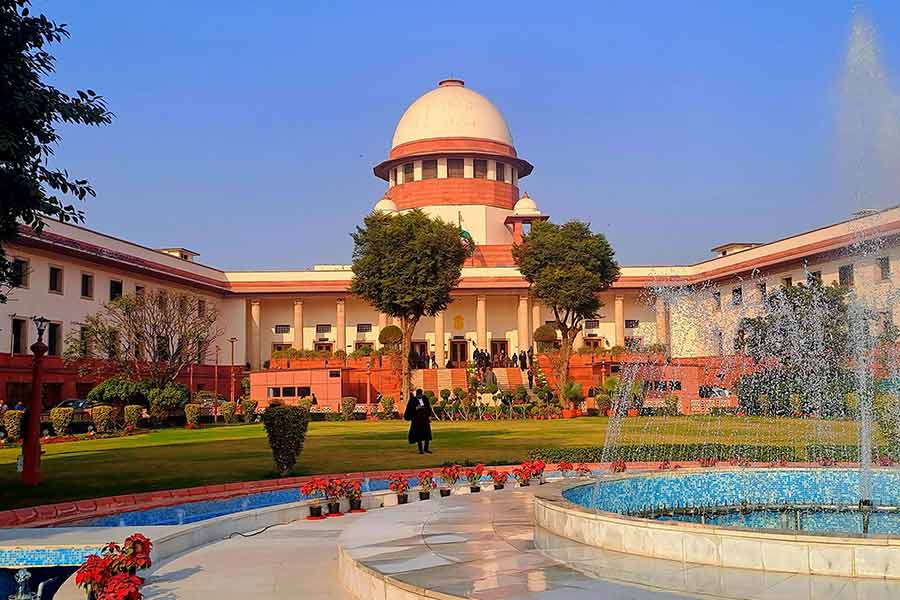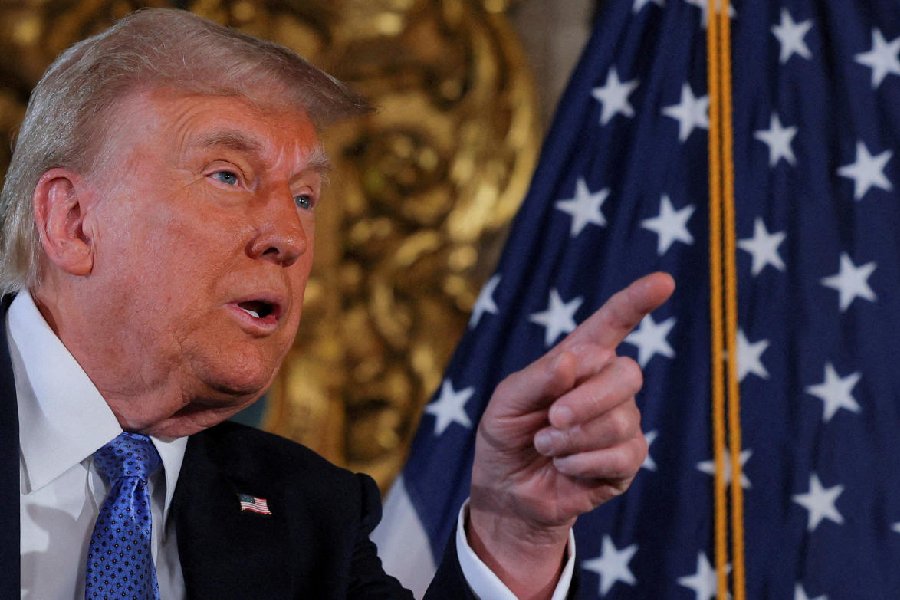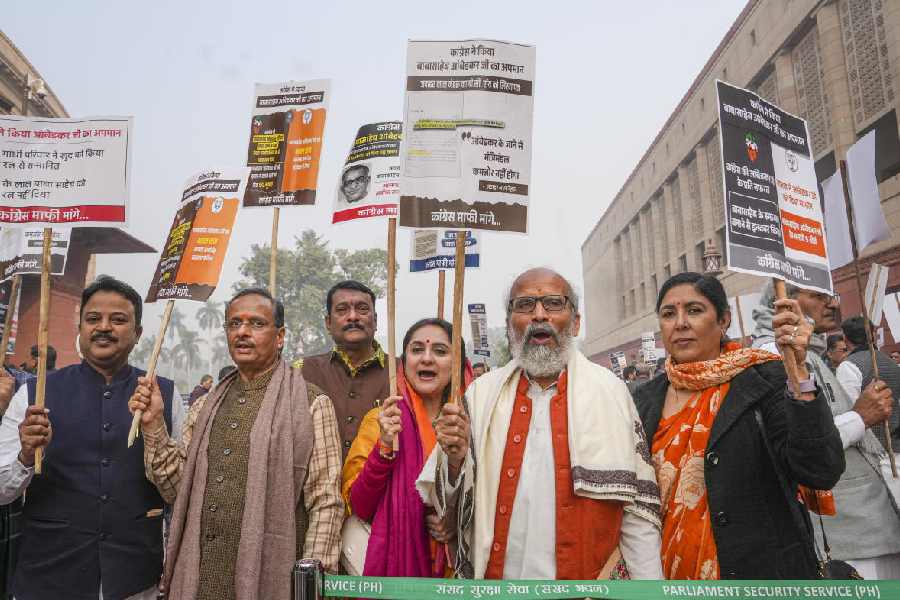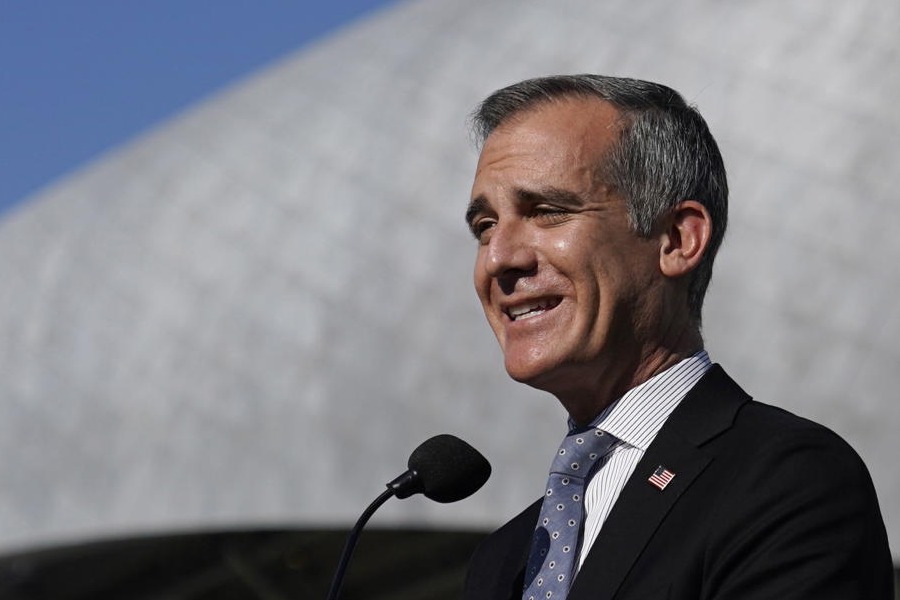The Union home ministry is likely to make changes to the citizenship application form “in a few days”, a pro-BJP Matua leader said on Friday, trying to allay the community’s fears about the Citizenship Amendment Act being a double-edged sword.
Section V of the form, which seeks documentary evidence of the applicants’ places of origin and stay in a neighbouring country, has left the Matua community jittery.
First, most of the Matua immigrants from Bangladesh say they do not have such documents. Second, they fear that establishing their Bangladeshi origin could be a “trap” to deny them rights and benefits — an apprehension that Trinamul has done its best to stoke.
Mahitosh Baidya, general secretary of the pro-BJP faction of the All India Matua Mahasangha, told The Telegraph he had received a call from Delhi that said changes to the application form would be formally notified soon.
“We had conveyed to the Union home ministry our apprehensions over some of the provisions in the application form. We had asked our community members not to file their applications till these issues were resolved,” he said.
“This afternoon, I got a call from the Union home ministry and was informed that the necessary changes, based on our representation, would be announced in a few days. I was assured that the provisions are being made easier; particularly, Section V is
being simplified.”
Baidya did not say what the changes would be nor who the caller from Delhi was.
The BJP has been wooing the Matua community with the Citizenship Amendment Act (CAA), having dangled it as a poll promise during the 2019 Lok Sabha campaign. The act fast-tracks citizenship for non-Muslim asylum seekers from Pakistan, Afghanistan and Bangladesh who arrived in India before December 31, 2014.
However, the Matuas have been sulking about the complexities of the online application process, launched earlier this month, leaving Bengal BJP leaders nervous and their opponents gleeful.
Many in the BJP feared that the CAA could end up helping Trinamul in Matua-dominated Lok Sabha seats such as Bongaon, Ranaghat and Barasat as well as parts of Burdwan East.
Within hours of the call from Delhi to Baidya on Friday afternoon, a sense of relief seemed to sweep over the BJP faction of the Mahasangha.
However, many in the community were cautious.
“While we are happy that the government is considering a change, we don’t want to celebrate till we see it in black and white.... We have had several heartbreaks in the past,” said Gopal Biswas, a Matua community member who has been unable to submit his application.
Among the sceptics was Sukriti Ranjan Biswas, president of the Joint Action Committee for Bengali Refugees which has been championing citizenship and rehabilitation for asylum seekers and had deposed before the joint parliamentary committee on the CAA, advocating a religion-neutral Act.
“The biggest hurdle before the Matuas is the initial acknowledgement of being a Bangladeshi. This is like a trap,” he said.
“Many people fear that such an acknowledgement might lead to their being robbed of their voting rights in India. I don’t think that people will start filing applications just because of some minor tweak to Section Five.”
Pramatha Ranjan Bose, president of the pro-Trinamul faction in the Mahasangha, echoed Biswas.
“The entire CAA notification process is ambiguous, misleading and literally a trap with uncertain outcomes,” Bose, a member of the advisory panel in Trinamul’s Nadia committee, said.
“There is no doubt that an applicant will find themselves in more trouble after filing the application. Most Matua community members have realised this.”
Bose added: “The BJP is trying to win Matua votes by inflicting a fraud on them before the Lok Sabha polls. They will not be successful.”
While the pro-BJP faction in the Mahasangha is headed by Bongaon MP Shantanu Thakur, the pro-Trinamul group is led by Rajya Sabha member Mamatabala Thakur.

